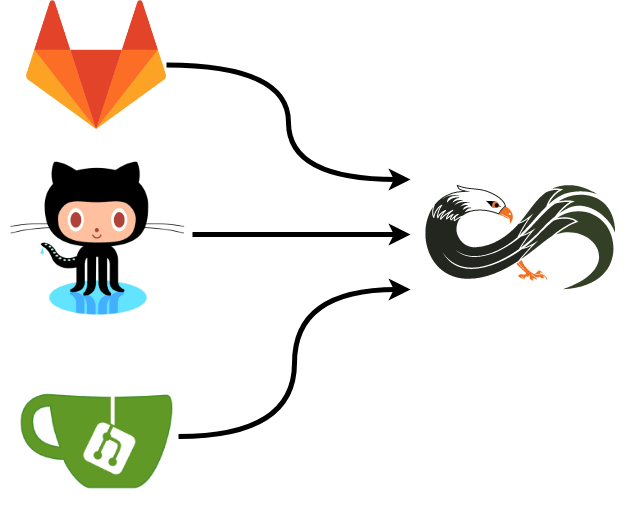ci/cd

I’ve been looking for a good Continues Integration(CI) system for quite some time now. System, that could work with all the major repository providers and run on my hardware. The need for multi-provider support comes from the fact that my code is spread across:
Github Gitlab, cloud and self-hosted Gitea - I’m currently replacing my self-hosted Gitlab with it. I find it much simpler and faster. This means I can neither have a single view of all my tests nor have a unified way of testing.

Since my previous posts[1][2] about CI/CD, a lot have changed. I started using Helm for packaging applications, stopped using docker-in-docker in gitlab-runner.
Recently, I started working on a few Golang microservices. I decided to try gitlab’s caching and split the job into multiple steps for better feedback in UI.
Few of the main changes to my .gitlab-ci.yaml file since my previous post:
no docker-in-docker using cache for packages instead of a prebuilt image with dependencies splitting everything into multiple steps.

After my previous post - How to easily deploy GitLab to Kubernetes - I’ve got a lot of responses. I helped several people to get GitLab up and running on their clusters. With that manifests it became much easier to deploy GitLab to Kubernetes. It was still few things that were usually misunderstood and misconfigured. You can find out these things only by talking with people who are actually trying to use your work.

This post will show how to build Golang docker containers using Gitlab-CI. It’s the sequel of my previous posts about building and optimizing docker containers.
I’ve written a small microservice in Golang, and I needed to configure my GitLab to auto build it. It uses Glide as a package manager for Go.
My directory tree for this project looks like this:
> $ tree ├── Dockerfile ├── build_base.sh ├── glide.

In one of the previous posts, I described the way I’m using GitLab to build and test images. Despite the fact that it’s pretty simple configuration and actual tests are run for less than a minute, complete pipeline takes around 20 minutes. Which seems very unreasonable. I spent some time digging out the problem and was able to reduce build time to around 3 minutes.
Here are few things, that should be considered to optimize pipeline.





